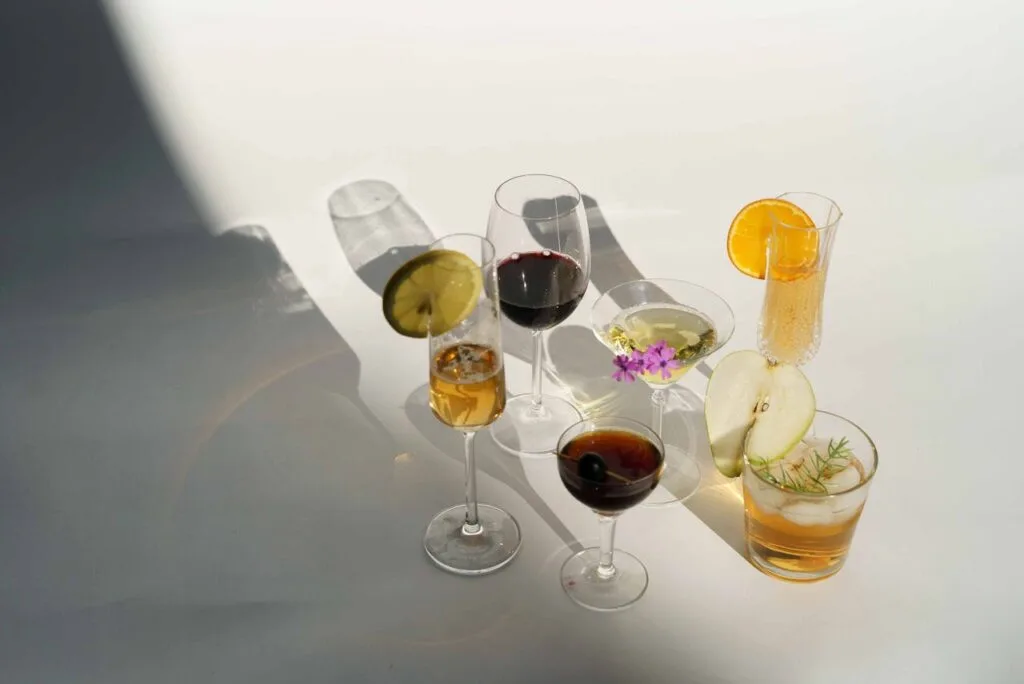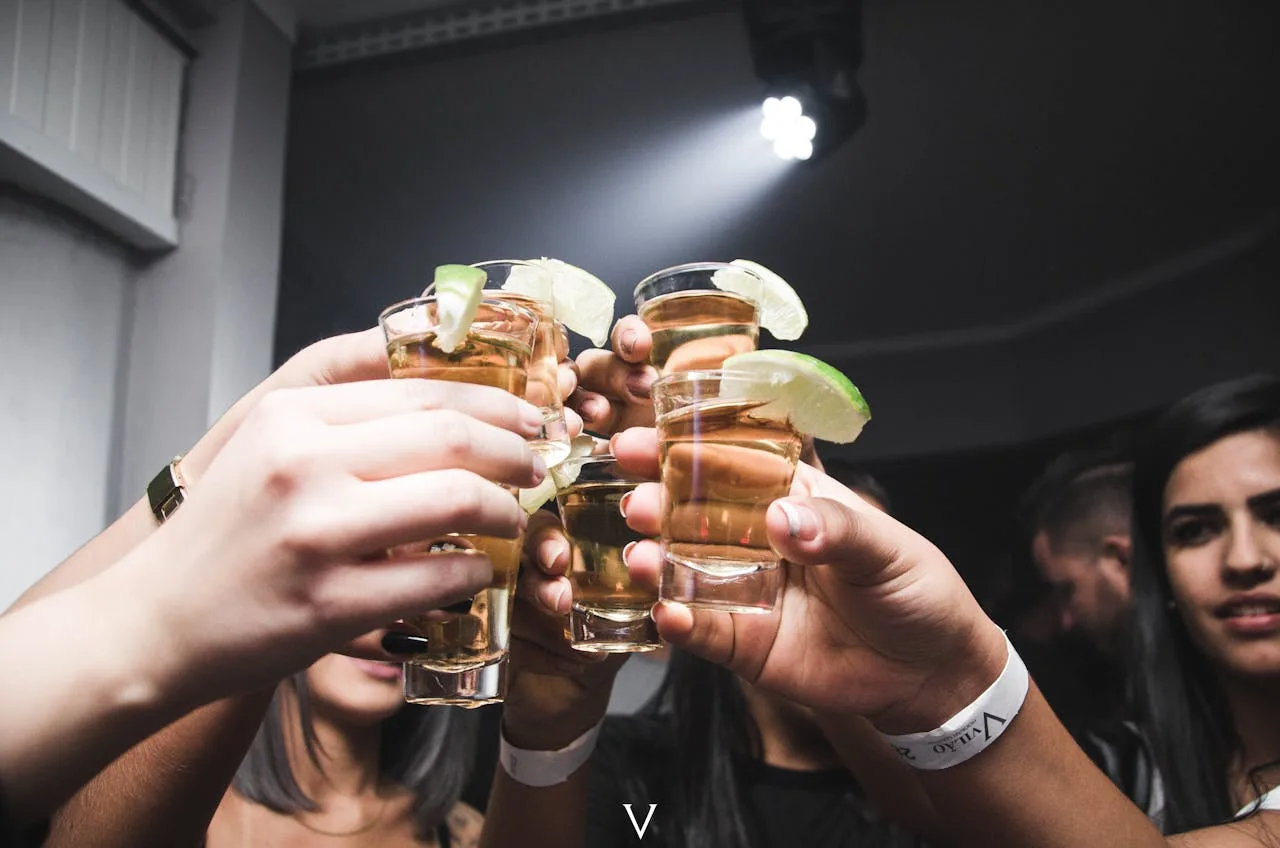It is believed that if you eat a piece of butter before a feast, you can stay drunk longer and avoid feeling unwell the next day. We checked whether this folk remedy is effective from a scientific point of view.
The media advises eating a piece of butter to relieve the symptoms of alcohol intoxication and subsequent hangover (for example, “Moscow 24" And "Gazeta.ru"), portals about sports And healthy lifestyle, as well as users social networks. Visitors are interested in the effectiveness of this method services questions and answers. On some resources approvedthat butter can be replace olive oil or mix them.
When alcohol hits into the human body, it is absorbed into the blood through the oral mucosa, as well as the walls of the stomach and small intestine. After this, most of it splits enzymes for absorption or easier removal from the body. Most of this occurs in the liver, but some is excreted from the body as is - in exhaled air and in urine. It is thanks to this that it is possible to determine the level of alcohol in the blood without analyzing it - for example, traffic police officers ask drivers to “breathe into a straw” or take a urine test.
The degree of influence of alcohol on the human body is determined by its concentration in the blood. This indicator affects well-being and behavior. The authors of most articles with recommendations to consume a little oil before a feast claim that this product envelops the stomach and prevents alcohol from being absorbed - this allegedly causes easier intoxication and good health the next morning. However, only 20% alcohol is absorbed into the blood through the stomach, a negligible amount through the oral mucosa, and the majority (up to 80%) through the small intestine. Therefore, “enveloping” the stomach, even if it occurs, will definitely not be able to completely prevent alcohol from entering the blood.

The concentration of alcohol in the blood (and therefore the intensity of intoxication) is influenced by several factors. Firstly, these are the physical characteristics of a person: a healthy man weighing 90 kg will become less intoxicated from the same amount of alcohol than a fragile teenager weighing 50 kg. Secondly, the speed at which a person drinks alcohol plays a role. The adult body is capable recycle approximately 10 ml of pure alcohol per hour, a larger dose can cause not just intoxication, but alcohol poisoning: nausea, vomiting, headache, etc. That is, in order to almost guarantee to avoid negative consequences, a glass of wine (125 ml) should be stretched out for one and a half hours, and a half-liter bottle of strong beer - for three. Shots (40 ml) of strong drinks: vodka, tequila, whiskey, etc. - should be drunk no more than once every one and a half to two hours.
Another factor influencing the rate of intoxication is how full a person was at the start of the party. Drink on hungry stomach not the best idea: if it is empty, the alcohol will quickly enter the small intestine, from where, as mentioned above, it is mainly absorbed into the blood. In this case, intoxication will occur faster. If the stomach digests food eaten in advance, alcohol will be delayed there longer and will enter the intestines (and then into the blood) in doses, which will give the body the opportunity to process it. Specialists recommend in such situations, eat a balanced meal that combines proteins, fats and carbohydrates (for example, a burger, sandwich or burrito).

In this sense, a piece of butter is better than nothing, but only slightly. It is quite difficult to eat a sufficient amount of this product so that it can seriously “clog” the stomach and thus retain alcohol in it due to the organoleptic properties of the oil. In addition, it consists of 63% saturated fats, which should not be abused in the diet. not worth it This can lead to cardiovascular disease and increase bad cholesterol levels. So, if you already have butter before the party, it is better to spread it on bread - this way, in addition to fats, the body will also receive carbohydrates and fiber. And from an organoleptic point of view, it will be more pleasant than eating butter with spoons.
At the same time, a hearty dinner before drinking can only reduce the speed at which intoxication occurs - its severity primarily depends on the amount of alcohol drunk, since sooner or later alcohol will still enter the bloodstream. That is, if you drink liters of strong drinks, dinner (whether it includes butter or not) will not save you. In addition, drunk alcohol affects not only the psychological state and behavior, but also the internal organs. "Verified" already wrotethat there is no safe dose of alcohol for health, regardless of what was eaten or drunk before it.
In addition to folk remedies like butter, you can often find recommendations to take adsorbents before alcohol - for example, activated carbon or "Enterosgel" Adsorbents prevent toxic substances from being absorbed and remove them from the body, but they need some time to do this, and alcohol is absorbed too quickly. Some scientists conducted experiments in the 1980s - measuring blood alcohol levels after taking activated charcoal and without it. In the end they came to conclusionthat this remedy is ineffective for “neutralizing” alcohol. "Verified" has not found any large, modern or authoritative studies that indicate that activated charcoal can reduce the negative effects of alcohol.

Research on the effectiveness of Enterosgel in such situations is quite limited, but experiments have shown that this drug slightly reduces blood alcohol levels. Thus, in 2014, Russian scientists offered six subjects - healthy men aged 28-30 years - took Enterosgel in different dosages before, after, or both before and after drinking alcohol. With any of the options for taking the drug, lower blood alcohol levels were recorded, and the most effective regimens were when people took the drug both before and after drinking alcohol. However, the results of this experiment can hardly be considered convincing confirmation of the effectiveness of Enterosgel due to the extremely small sample.
When it comes to hangovers, science still doesn't know unknown, by what mechanisms in the body it is caused, and therefore, ways to prevent it are unknown (except to completely give up alcohol or at least reduce its doses to a minimum). Methods to combat a hangover are also unknown - so far experts have come to the conclusion that you just need to survive it, if necessary, using painkillers and plenty of fluids.
Thus, there is no convincing evidence that eating a stick of butter before a party will help you stay drunk or avoid a hangover. “Verified” was unable to find any reports on experiments that would confirm the positive effect of this folk remedy, nor the mechanism that would provide it. It is much better to eat a hearty meal before drinking alcohol. You can also find recommendations from some pharmaceutical products that supposedly help reduce intoxication and avoid feeling unwell the next day, but research on their effectiveness is extremely limited.
Cover photo: pexels.com
Read on the topic:
- Healthline. 7 Evidence-Based Ways to Prevent Hangovers
- Is it true that lowering the strength of alcoholic drinks leads to faster intoxication and a more severe hangover?
- Is it true that you can get rid of a hangover by drinking a little alcohol?
- Is it true that there is a safe or even healthy dose of alcohol?
If you find a spelling or grammatical error, please let us know by highlighting the error text and clicking Ctrl+Enter.






